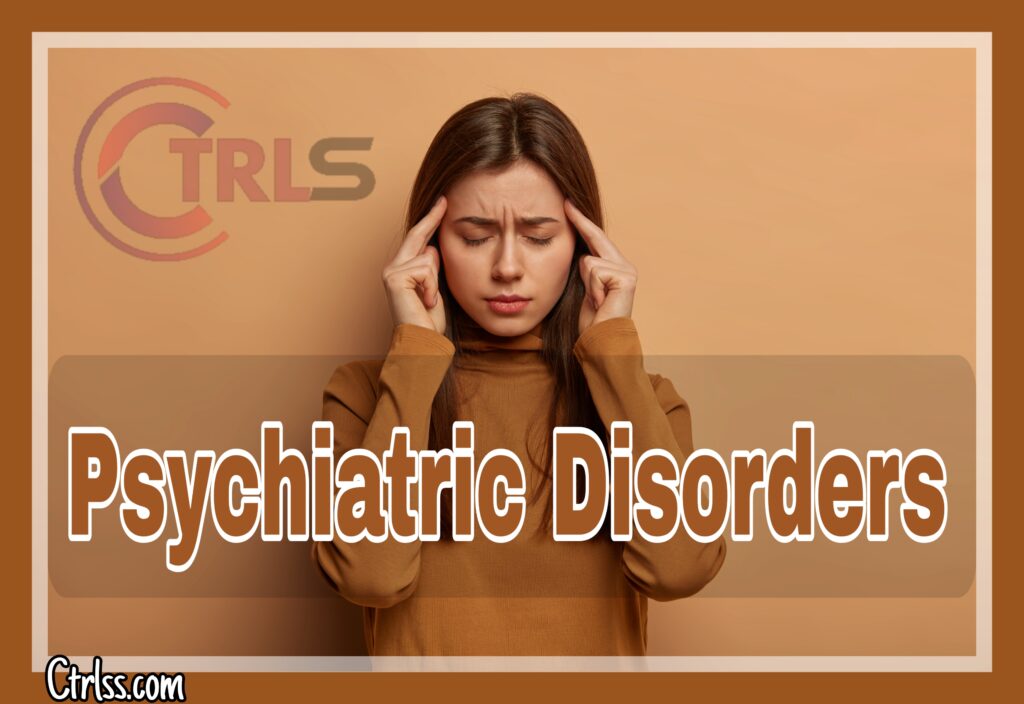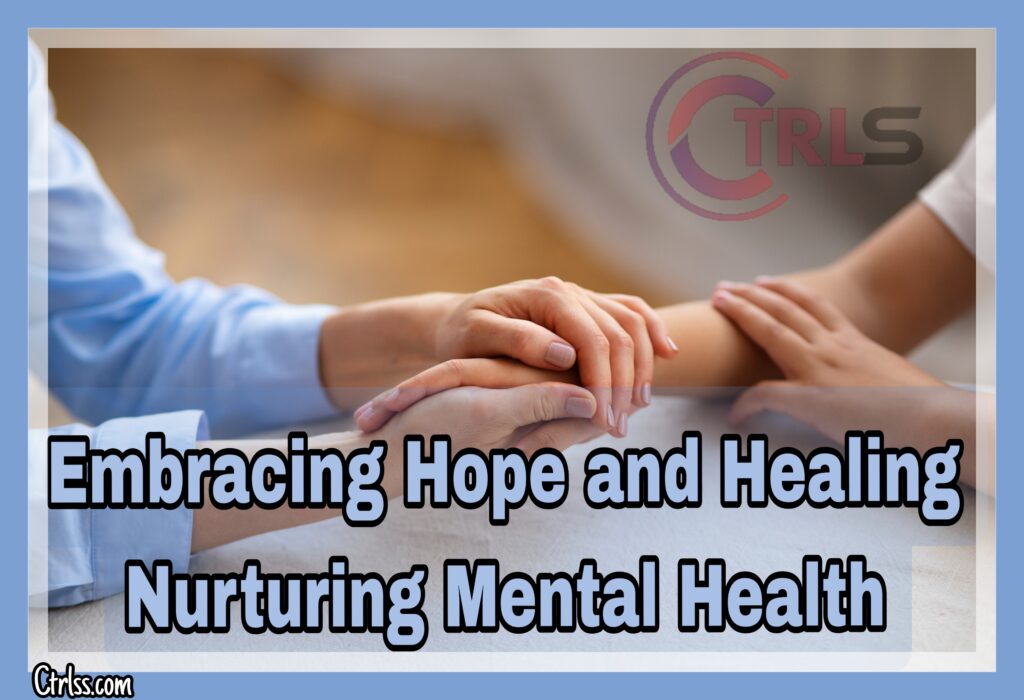What Is Psychiatric Disorders ? and What Is Symptoms, Causes, and Treatment?
Welcome, dear readers, to our enlightening journey into the realm of psychiatric disorders. In this comprehensive blog post, we’ll delve into the mysterious world of these conditions, exploring their symptoms, causes, and the available treatments. So, grab a cup of coffee, get cozy, and let’s embark on this captivating exploration together!

Decoding Psychiatric Disorders : Unraveling the Puzzle
Psychiatric disorders can be likened to a complex puzzle, each with its own unique set of challenges. These conditions affect the mind, disrupting thoughts, emotions, and behaviors. Let’s shed light on some common psychiatric disorders and their key characteristics.
Anxiety: Battling Restless Minds
Anxiety, a prevalent psychiatric disorder, can turn a calm mind into a turbulent storm. It manifests as persistent worry, restlessness, and a sense of impending doom. Individuals with anxiety often experience physical symptoms like increased heart rate, sweating, and trembling. The weight of anxiety can be overwhelming, affecting daily life and overall well-being.
>> Anxiety
Depression: Navigating the Depths of Darkness
Depression, a profound psychiatric disorder, plunges individuals into the depths of darkness. It goes beyond mere sadness and affects one’s entire being. Symptoms may include persistent feelings of sadness, loss of interest in activities, changes in appetite and sleep patterns, and a lack of energy. Depression can cast a somber veil over life, making even the simplest tasks feel arduous.
>> Depression
Bipolar Disorder: Riding the Roller Coaster of Emotions
Bipolar disorder takes individuals on an emotional roller coaster ride. It is characterized by extreme mood swings, oscillating between manic episodes of elevated mood, energy, and impulsivity, and depressive episodes marked by sadness, fatigue, and a loss of interest. The unpredictability of bipolar disorder can disrupt relationships, work, and daily functioning.
Schizophrenia: Unraveling Reality’s Threads
Schizophrenia, a complex psychiatric disorder, weaves a tangled web within one’s mind. It manifests as a distortion of reality, with individuals experiencing hallucinations, delusions, disorganized thinking, and a lack of emotional expression. Schizophrenia can be profoundly disruptive, making it challenging for individuals to navigate everyday life.
Attention-Deficit/Hyperactivity Disorder (ADHD): Taming the Restless Mind
ADHD, a neurodevelopmental disorder, turns a restless mind into a wild stallion. It is characterized by difficulties in sustaining attention, impulsivity, and hyperactivity. Individuals with ADHD often struggle with organization, time management, and maintaining focus. The constant whirlwind of thoughts and impulses can be overwhelming, impacting academic and occupational performance.
Unraveling the Causes: Peering into the Depths
While the exact causes of psychiatric disorders remain elusive, a combination of factors comes into play. Let’s explore some potential contributors to these conditions:
- Genetic Factors: There is evidence to suggest that certain genetic variations may predispose individuals to psychiatric disorders. Family history can play a significant role in the development of these conditions.
- Brain Chemistry and Structure: Imbalances in brain chemicals, such as neurotransmitters, can influence mood and behavior. Additionally, structural abnormalities in specific brain regions have been associated with various psychiatric disorders.
- Environmental Factors: Traumatic events, chronic stress, substance abuse, and significant life changes can contribute to the onset of psychiatric disorders. Environmental factors can interact with genetic vulnerabilities, increasing the risk of developing these conditions.
- Developmental Factors: Early life experiences, including childhood trauma, neglect, or abuse, can shape the development of the brain and increase the vulnerability to psychiatric disorders later in life.
Seeking the Light: Treatments for Psychiatric Disorders
Treatment approaches for psychiatric disorders aim to alleviate symptoms, enhance functioning, and improve overall well-being. Let’s explore some common strategies employed in the management of these conditions:
- Medication: Psychiatric medications, such as antidepressants, anti-anxiety drugs, mood stabilizers, and antipsychotics, can help regulate brain chemistry and alleviate symptoms associated with specific disorders. However, remedy must usually be prescribed and monitored via way of means of a certified healthcare professional.
- Psychotherapy: Talk therapy, such as cognitive-behavioral therapy (CBT), can be a powerful tool in treating psychiatric disorders. It helps individuals identify and challenge negative thought patterns, develop coping skills, and navigate their emotions effectively.
- Lifestyle Modifications: Adopting healthy lifestyle habits can complement other treatment approaches. Regular exercise, a balanced diet, sufficient sleep, and stress reduction techniques like mindfulness or yoga can contribute to overall well-being and help manage symptoms.
- Support Networks: Building a strong support network is crucial in the journey towards recovery. Support groups, family therapy, and seeking guidance from trusted individuals can provide emotional support, validation, and encouragement.
Embracing Hope and Healing: Nurturing Mental Health

Recovering from a psychiatric disorder is a journey that requires patience, compassion, and a commitment to self-care. Here are some additional strategies for nurturing mental health and promoting overall well-being:
- Self-Care: Engage in activities that bring you joy and relaxation. Whether it’s practicing a hobby, spending time in nature, or indulging in self-reflection, prioritize self-care as an essential part of your routine.
- Mindfulness and Meditation: Cultivate mindfulness through practices like meditation, deep breathing exercises, or yoga. These techniques can help calm the mind, reduce stress, and enhance self-awareness.
- Healthy Boundaries: Establishing healthy boundaries is crucial for maintaining mental well-being. Learn to say no when necessary, prioritize your needs, and surround yourself with positive influences.
- Seeking Professional Help: If you or someone you know is struggling with a psychiatric disorder, don’t hesitate to reach out to a mental health professional. They can provide guidance, support, and tailor treatment plans to individual needs.
Breaking the Stigma: Spreading Awareness and Understanding
It’s essential to break the stigma surrounding psychiatric disorders. They are real, medical conditions that affect millions of individuals worldwide. By spreading awareness, fostering understanding, and promoting empathy, we can create an environment of acceptance and support for those navigating the complexities of mental health.
Illuminating the Path to Recovery
So Psychiatric disorders are multifaceted challenges that require a holistic approach. By understanding their symptoms, exploring potential causes, and embracing effective treatments, we can pave the way for recovery and improved quality of life. Remember, you are not alone in your journey. Reach out, seek help, and embrace the light that leads to healing and rejuvenation.
So, dear readers, as we conclude our exploration of psychiatric disorders, let us carry the torch of knowledge, empathy, and support. Together, we can create a world where mental health is prioritized, understood, and nurtured. Let’s light up the path to recovery and well-being for all.
Thank you for reading!



